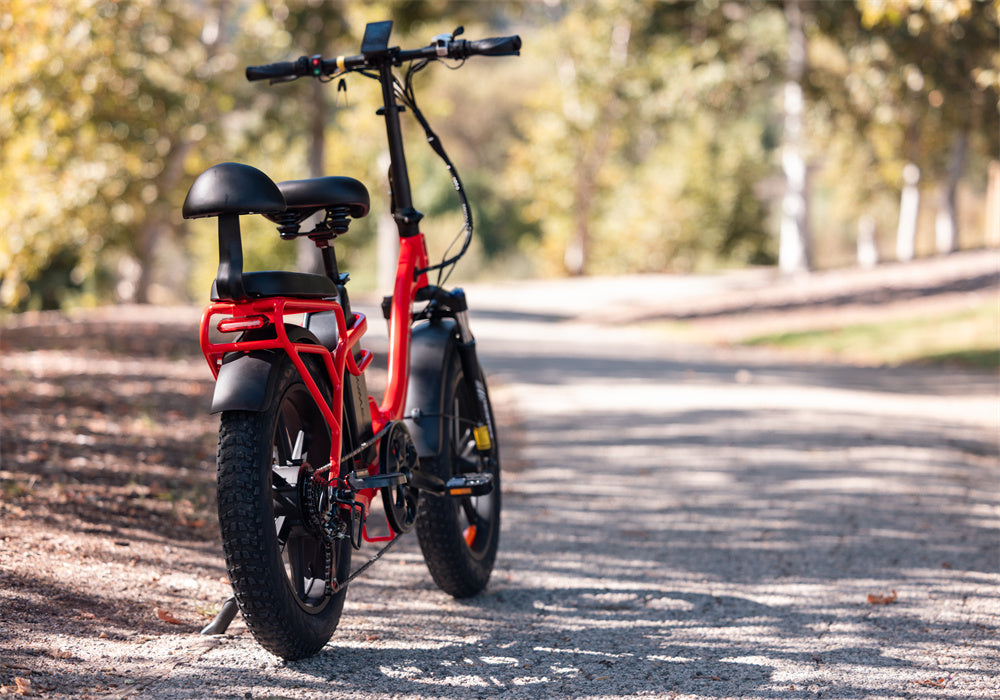Electric bikes have transformed urban mobility, offering a greener, more efficient alternative to traditional bicycles and motor vehicles. Among the key features that distinguish various e-bike models are the throttle and pedal assist systems. These technologies not only augment the riding experience but also cater to diverse user needs, facilitating a broader adoption of e-bikes for different lifestyles and purposes.
Throttle Systems on E-Bikes
Throttle systems empower the rider with immediate motor assistance, mimicking the operational mechanism of motorcycles and scooters. This direct control over the motor enables riders to travel without pedaling, which can be particularly beneficial under certain circumstances.

Comprehensive Types of Throttle Controls
- Twist Throttles: Resembling motorcycle controls, these throttles require the rider to twist a component on the handlebar to activate and control the motor's power. The amount of twist directly correlates with the motor’s output, offering nuanced control over speed.
- Thumb Throttles: Operated by pressing a button or lever with the thumb, this type provides an alternative that can reduce hand fatigue and offer precision without the need for full grip engagement, making it ideal for urban commuting where frequent adjustments to speed are necessary.
Advantages of Using a Throttle
- Instantaneous Power:Ideal for scenarios requiring quick acceleration, such as crossing busy intersections or starting off on an uphill, thereby enhancing both convenience and safety.
- Accessibility for Diverse Riders: Throttles can make cycling accessible and enjoyable for people with chronic pain, older adults, or those recovering from injury, by reducing or eliminating the need for physical exertion.
Considerations When Using Throttle
- Battery Life: Frequent use of the throttle without pedaling can drain the e-bike’s battery significantly faster, potentially limiting the distance that can be covered on a single charge.
- Legal Implications: In many regions, the presence of a throttle may classify an e-bike as a motor vehicle, subjecting it to more stringent regulations, including licensing, insurance, and restricted access to bike lanes and trails.

Pedal Assist Systems
Pedal assist systems, commonly referred to as Pedelecs, subtly enhance the pedaling effort of the rider with motorized assistance, promoting a more engaging and traditional cycling experience. This system integrates seamlessly with the rider’s motion, providing a boost proportional to the input through advanced sensor technology.
Detailed Levels of Pedal Assist and Their Applications
- Low Assist: Adds a slight augmentation to the rider's effort, perfect for those seeking a gentle assist on flat terrains or during leisurely rides, preserving the feeling of traditional biking while extending range.
- Medium Assist: Provides a noticeable yet balanced boost, ideal for daily commutes that involve a mix of flat and hilly terrains, helping riders arrive at their destination less fatigued.
- High Assist: Offers substantial assistance, drastically reducing the effort required for pedaling, especially beneficial on challenging inclines or for riders needing significant support.
Benefits of Pedal Assist
- Efficiency in Energy Usage: By only activating when the rider is pedaling, this system maximizes the battery’s utility, enabling longer rides and more reliable performance.
- Encouragement of Active Lifestyle: Even with motor assistance, riders engage in physical activity, which can be adjusted in intensity, making it suitable for exercise and improving overall health.
Potential Drawbacks of Pedal Assist
-
Continuous Effort Required: Unlike throttle systems, pedal assist requires continuous pedaling, which might not be preferable for those seeking a more relaxed ride or those with certain physical limitations.
- Complexity and Maintenance: The sensors and mechanisms that enable pedal assist are sophisticated, potentially increasing the initial cost and requiring more frequent maintenance compared to simpler throttle systems.

Is Throttle Assist Superior to Pedal Assist?
Is opting for the throttle always the best option? Perhaps not. Choosing the pedal assist might actually be a better decision.More Exercise: Pedal assist requires you to pedal to activate the motor, so you're still getting a workout while riding. This can be great for those looking to maintain fitness or enjoy the physical aspects of cycling alongside the benefits of electric power.
Extended Battery Life: Because pedal assist only provides power when you are actively pedaling, it tends to use the battery more efficiently. This can lead to longer rides on a single charge compared to using a throttle, which can drain the battery faster since it can operate without any pedaling at all.
Natural Riding Feel: Pedal assist helps maintain the natural feel of cycling because the motor aids your pedaling rather than replacing it. This can be appealing for traditional cyclists who want some assistance without losing the core experience of biking.
Regulatory Compliance: In many areas, pedal assist e-bikes are subject to fewer regulations than throttle e-bikes. They are often classified similarly to regular bicycles, which means they can be used on bike paths and in bike lanes where throttle e-bikes might be restricted.
Safer Speed Control: Since pedal assist systems provide power proportional to the rider's pedaling efforts, it offers smoother acceleration and helps maintain control over the bike's speed, reducing the risk of accidents due to sudden acceleration.

The Best Pedal Assist Ebike At TESWAY
The TESWAY S5, a top of the line pedal assist bike is now priced at $999.99. With its 750W motor this bike allows you to venture farther providing a range of, up to 110 miles on a single charge.
Enjoy comfort as you smoothly ride over any type of terrain thanks to the bikes front fork and a sturdy 6061 aluminum alloy frame built for long lasting durability.
Safety comes first with the bikes stopping power ensured by its 180mm*2.3T mechanical disc brakes. Additionally the TESWAY S5 comes with cushions and a back seat making it ideal for rides, with your kids.
Embrace the future of cycling with the pedal assist e bike from TESWAY—where technology blends seamlessly with comfort and style.







Share:
Power Assist: The Ins and Outs of Class 2 Electric Bikes
The Real Difference Between a 500W and 750W Motor on E-Bikes